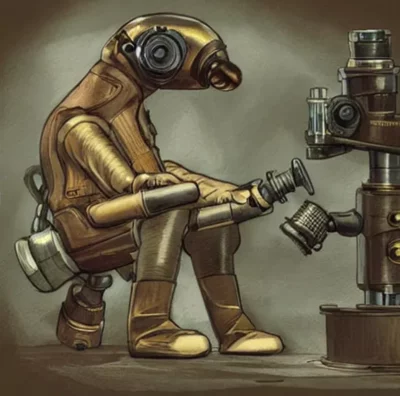
If you’re a beginner in the world of poker or online poker in the year 2024, it can be overwhelming to sift through the vast number of tips and strategies available online. With so many articles, videos, and books on the subject, it can be hard to know where to start. But starting out on the right foot is crucial for developing good habits and avoiding common mistakes that can harm your poker play and results in the long run.
That’s why we’ve compiled this list of 11 beginner poker tips to help you navigate the learning curve and get started on your journey to becoming a winning poker player. These tips cover the basic strategy and they’re designed to help you build a solid foundation of knowledge and skills that will serve you well throughout your poker career.
Whether you’re a complete newbie or a casual player looking to improve your game, these tips are for you. They won’t turn you into a poker pro overnight, but they will set you on the right track and help you avoid the most common pitfalls that trip up so many beginners.
If you’re ready to start your poker journey, read on and learn how to play smarter, avoid costly mistakes, and increase your chances of success at the tables.
1. Understand Hand Rankings and Position
- Master hand rankings to save decision time
- Position is crucial, play more hands in position
To start your poker journey, you must first learn the hand rankings and rules. Even though they seem basic, mastering hand rankings will save you valuable decision time during the game. It is important to know if you are beating a straight with a flush, for instance.
» Official Poker Hand Rankings

Additionally, understanding the role position is essential in poker. It allows you to see what other players do before making your own decisions. If you have a position on other players, you act after them, which gives you access to important information like their bet sizing and timing. This information can help you make better decisions and even bluff successfully.
Remember, having position on your opponents is crucial in poker games, and you should play more hands while being in position. The hands you decide to play are largely affected by the position you are in. The later position you have, the more hands you can open and put much more pressure on your opponents.
2. Be Selective with Your Starting Hands
- Play tight, be selective with your hands
- Fold most hands pre-flop to avoid trouble
A crucial tip for poker beginners is to play tight and be selective with the hands you play. Stick to decently good hands that have a higher chance of winning. As a general guideline, for 6-max cash games, play the top 20% of hands, and for full-ring games, play the top 15%.
This means folding 80-85% of the hands you’re dealt pre-flop, which might seem counterintuitive. However, playing subpar hands can lead to trouble and make it challenging to win the game.
By folding most hands pre-flop, you can avoid many situations where your decent hand is beaten by an even better hand. Playing tight in the early stages of the game is one of the best tips for new poker players.
Remember, it’s better to fold and wait for a good hand than to lose chips on a bad hand. By playing selectively and waiting for the right moments, you can increase your chances of winning and improve your overall poker strategy.
3. Start at the Lowest Limits
- Start small to learn without losing big
- Low-stakes games help face weaker opponents
- Master the basics before advancing to higher stakes

When you start out playing poker, it’s important to start at low stakes. Although some players may find low-stakes games unappealing, remember that your goal is to learn and improve without losing large amounts of money. Starting small has several benefits.
You’ll feel more at ease knowing you’re not risking a significant amount of money. Even if you lose a few games at the beginning, it won’t have a massive impact on your finances. You can focus on learning the game without breaking the bank.
Playing at low stakes allows you to face weaker opponents and gradually improve your skills as you move up the ranks. This is a better option than playing against more experienced players and losing all your money right away.
Lastly, starting at the lowest levels helps you develop a better understanding of the game. You can learn about positions, which poker hands to play, and gain practical experience in real games.
Before advancing to higher stakes, make sure you’ve mastered the basics of poker strategy and feel comfortable in any game you play.
» Learn about Bankroll Management (Upswing Poker)
4. Refrain from Making Big Bluffs
- Bluffing comes in different forms and degrees
- Stick to tight, solid poker to avoid costly mistakes
- Build a strong foundation before incorporating advanced bluffs

It’s a common misconception that poker involves making stone-cold bluffs at every opportunity. In reality, bluffing in poker comes in many different forms and degrees, and rarely involves making huge bluffs like those seen in Hollywood movies.
The most common type of bluff is the “quick bluff” or “small ball.” These are small bets made to win small to medium-sized pots with a high success rate. They involve minimal risk and a slightly profitable reward.
Stone-cold bluffs are the rarest and riskiest form of bluffing. They involve bluffing with a hand that has almost no value and require a high-level understanding of the game and opponent. Stone-cold bluffs should be avoided by beginner poker players.
To improve your poker game, focus on playing tight and ABC poker. This means being selective with the hands you play and avoiding the temptation to get too creative with your bluffs. Save bluffing for when your game improves and you have a better understanding of how to execute a complicated bluff. Even then, you should only bluff very rarely.
As a beginner, it’s essential to focus on getting big value out of your big hands and avoid making costly mistakes by getting too fancy with your play. Remember that most of your poker profits will come from other players’ mistakes, so play solid, tight poker and wait for your opportunities to strike.
Remember, the goal of poker is to win money, not to impress your opponents with fancy play. Stick to solid, tight poker and wait for your opportunities to strike.
As you gain more experience and develop a better understanding of the game, you can start to incorporate more advanced plays into your strategy. But as a beginner, your main focus should be on playing solid poker and avoiding costly mistakes.
It’s also important to note that bluffing should not be the focus of your game. While it can be an effective tool when used correctly, it’s not something that should be relied on as a primary strategy.
Instead, focus on playing the right hands in the right positions, understanding pot odds, and reading your opponents. These skills will serve you well in any poker game and will help you build a solid foundation for your poker career.
In summary, while bluffing is a part of poker, it’s not the most important aspect of the game. As a beginner, focus on playing tight, solid poker and avoiding costly mistakes. As you gain experience and develop your skills, you can start to incorporate more advanced plays into your game. But for now, stick to the basics and focus on building a strong foundation for your poker career.
5. Pick Good Games (Game and Table Selection)
- Choose games with deep stacks for bigger bets
- Select games with less skilled, loose opponents for an advantage
Game selection in poker refers to the process of choosing the best table or game to play based on a variety of factors. This is an essential skill for any poker player, as the quality of the game has a significant impact on your ability to make money.
One of the critical factors to consider when selecting a game is the amount of money on the table. In general, you want to play in games where the stacks are deep enough to make sizable bets and raises. A game with players who are all short-stacked or playing with low-value chips will not offer many opportunities for profit.
Another important factor is the skill level of your opponents. Ideally, you want to play against players who are less skilled than you, as this will give you a significant advantage. This can be tricky to gauge, but watching a table for a few hands should give you a good idea of the overall skill level.
Loose opponents are generally easier to play against, as they tend to call more often and make more mistakes. Aggressive opponents can be more challenging to handle, as they force you to make difficult decisions and put more pressure on your game.
Finally, it’s important to consider the behavior of your opponents. Players who are drinking or gambling on other games while playing poker are generally not taking the game seriously and may be easier to beat. On the other hand, players who are fully focused on the game may be tougher competition.
Overall, game selection is an essential skill that can significantly impact your poker profits. By taking the time to assess the quality of the games available and choosing the best option, you can maximize your chances of success at the tables.
» Guide to Poker Table Selection (blackrain79)
6. Play Tight and Aggressive
- Play fewer hands and be aggressive
- Bet and raise with the best hand, fold when likely beaten
- Playing tight-aggressive maximizes winnings, but requires control and selectivity

Poker is a game of skill, and one of the most popular playing styles among winning poker players is tight-aggressive play. Tight-aggressive play involves playing a limited number of hands and being aggressive when you do play. This style is favored by experienced players because it is profitable, but it is also a good style for beginners to learn.
To play tight-aggressive poker, you need to take control of the game and not rely on your opponents to make moves. If you feel that you have the best hand, then you should bet and raise rather than wait for your opponents to act. This style of play ensures that your opponents have to pay to see more cards and try to improve their hands, increasing your chances of winning.
Being a tight-aggressive player doesn’t mean you have to bet and raise at every opportunity. It means you need to pick your spots carefully and put your opponents to tough decisions. You should fold if you believe your opponent has you beat, as folding is a viable option for tight-aggressive players. Knowing when to slow down and let go of a hand is vital to success.
There are four main playing styles in poker: tight-aggressive, loose-aggressive, tight-passive, and loose-passive. Both aggressive styles can be profitable, but passive styles will lose you money. The loose-aggressive style can be profitable, but it is tricky and is best suited for experienced players. For beginners, tight-aggressive play is the best style to learn.
Playing tight-aggressive poker involves betting and raising when you have the best hand. It doesn’t guarantee that you will have the best hand at the river, but it maximizes your winnings. Getting your money in the middle when you have the best of it is how you win money from the game.
A tight-aggressive playing style involves being selective about which hands you play. You should only play hands that have a good chance of winning. If you play too many hands, you risk losing money. Tight-aggressive players should also be aggressive in their betting, as this style of play increases your chances of winning.
In conclusion, tight-aggressive play is a profitable playing style in poker. It involves playing a limited number of hands and being aggressive when you do play. It is favored by experienced players and is a good style for beginners to learn. To be successful at tight-aggressive play, you need to take control of the game, be selective about which hands you play, and be aggressive in your betting. Knowing when to fold is also important for success. Remember, poker has four main playing styles, but tight-aggressive play is the best style for beginners to learn.
» How to play tight and aggressive (betandbeat.com)
7. Stick to One Table
- Concentrate on one table to observe and learn from opponents
- Playing one table allows you to adjust your strategy and save money

One of the most crucial tips for improving your poker game is to concentrate on one table. Multi-tabling may seem appealing, but it’s more important to learn the game and gather information at a steady pace. By playing one table, you can observe the action more closely, learn from other players’ strategies, and identify their mistakes to gain an advantage.
Watching every move at the table helps you develop a better understanding of what good players do, as well as how they approach the game. You’ll also be able to recognize opponents’ tendencies, such as bluffing frequently or only playing with strong hands. This information can help you adjust your strategy and make better decisions, saving you money in the long run.
As you continue to observe, focus on playing a tight-aggressive approach, using your position to your advantage. This can take you a long way in the game, even if you only play at one table. Remember, it’s better to take your time and learn properly than to rush into multi-tabling and risk making costly mistakes.
8. Learn How to Calculate Poker Odds
- Knowing pot odds is crucial for successful poker play
- Calculating pot odds helps determine whether a call is profitable

Calculating poker odds is crucial to success in the game. Making mathematically incorrect decisions will lead to long-term losses. Pot odds are the ratio between the size of the pot and the size of the bet. It’s a straightforward calculation to determine basic pot odds, but it’s important to know whether you’re getting the right price to call based on the chance of your hand being good at showdown.
For example, if there is $200 in the pot and the bet to you is $10, you are getting 2-1 on your money. But let’s say you have 7♦6♦ on a board of A♦T♦2♣, giving you a small flush draw with nine outs to hit your flush. You have about a 36% chance of hitting that flush, or about a 1 in 3 shot.
Is it profitable long-term to call that $10 bet at 2-1 odds? The answer is yes, barely, because you only have to hit that draw 1 in 3 times just to break even (and we’ve already determined you’ll hit it just over 1 in 3).
9. Know Your Outs
- Outs are cards that can give you the winning hand
- Knowing your outs helps you make better decisions during a hand

The ability to calculate outs is a fundamental skill for any poker player. Although it may seem daunting at first, practice can make it second nature. Ideally, you would always have the best hand when you put your money in, but that’s not always the case. In those situations, the goal is to make a hand later in the game that’s better than your opponent’s. The cards that can give you the winning hand are called outs.
For example, if you have J♥T♥ on a flop that reads Q♥9♠2♦ you have 15 outs to make a straight or flush. There are nine hearts to give you a flush and three more kings and three more eights to give you a straight.
Once you can accurately calculate your outs, you’ll be able to determine the pot odds you need to continue with a hand. Practicing this skill will help you put your money in good or with good odds, which are the two essential components of successful poker.
You can read up on dozens of poker outs and their probabilities in our No Limit Hold’em Poker Odds and Outs page.
» No Limit Hold’em Poker Odds and Outs
10. Read Your Opponent
- Categorize players as loose or tight
- Think in ranges, not exact hands
- Bet sizing is a critical tell
- Consider your opponent’s position

One of the most challenging aspects of playing poker is learning how to read your opponent’s hand. It is even more difficult in online poker where you cannot see any physical tells. However, once you learn how to read your opponent’s hand, you will notice significant improvements in your play and results. Here are some tips and strategies for reading your opponent’s hand in online poker.
Categorize Players
To read your opponents’ hands, you need to start before the flop. Observe how each player plays the game in the first few hands. This will give you an idea of their playing style, and you can categorize them as loose or tight players. Knowing their playing style can help limit the range of possible hands they may hold, allowing you to read their hands more effectively.
Think in Ranges
Rather than trying to guess your opponent’s exact hand, try to guess the range of hands they may have. With limited information available in poker, guessing the hand range is more practical than guessing their exact hand. Based on the range of possible hands, you can decide whether to fold or take on their hand.
Bet Sizing: The Best Tell
The most crucial factor to consider when reading your opponent’s hand is their bet size. Most players choose a specific bet size for a reason, and it is up to you to figure out why. For example, if your opponent bets strongly, then checks weakly on the flop, you need to understand why they are doing so. Are they hoping to bait you or do they have a weak hand? Once you start recognizing patterns in your opponent’s betting behavior, you can use them to your advantage.
Consider Your Opponent’s Position
The final aspect of reading your opponent’s hand is to consider their position in the game. Most poker players play more hands from the button, which is the most sensible thing to do. However, this also means that they play fewer hands from earlier positions. If your opponent plays from one of these earlier positions, they may have a hand they feel confident about. Knowing their position can help you narrow down their range of possible hands.
Be Patient
Reading your opponent’s hand is an essential skill that requires practice and patience. Start with free poker games to practice reading your opponents’ hands before moving on to real money games. Use a poker hands chart next to you to familiarize yourself with the best poker hands. It is also important to keep learning and honing your skills through books, videos, and other resources.
In conclusion, reading your opponent’s hand is challenging, but it is a critical skill that can improve your results in online poker. Start by observing your opponent’s playing style, hand ranges, bet size, and position. With practice and experience, you can become more confident in your ability to read your opponents’ hands and make better decisions during the game.
11. Understand Luck and Variance
- Variance is the ups and downs of poker results
- Short-term losses or winnings don’t necessarily reflect skill

Variance is a crucial term in poker that refers to the ups and downs of playing the game. While luck plays a role in the short term, skill is the determining factor in the long run. However, playing correctly is not always easy, and even good players may lose to bad players. Understanding variance and its impact on your game can help you become a better player.
Variance is the difference between how much money you expect to win in the long run and the results you see in the short term. For example, if your win rate suggests that you should win $500 in a month, but you end up losing $1,000 instead, that is attributed to variance.
Several factors can affect the amount of variance you experience in a game of poker: Your playing style, the betting type, and the game type can all increase or decrease variance. For example, a loose-aggressive player who takes more risks will have greater variance than a tight player. Omaha has greater variance than Hold’em, and large multi-table tournaments (MTTs) have more variance than single-table tournaments.
Even if you are playing excellent poker, you may still lose money in the short term, which can make it difficult to assess your performance. It is essential to trust your ability and continue learning, even if the results do not seem to reflect your skill level. Confidence at the poker table is crucial, especially during losing phases. Remember that variance is a short-term phenomenon and that skill will ultimately win out in the long run.
Check out our Variance Calculator and get an idea of what kind of variance you can expect playing poker.
» Cash Game Poker Variance Calculator
TL/DR: Summing it up
These are the key points you need to know when learning to play poker in 2024:
- Play mostly in late position
- Play tight, be selective, and fold most hands pre-flop
- Start small, learn the basics, and don’t run big bluffs
- Choose games with deeper stacks and less skilled, loose opponents
- Be aggressive, concentrate on one table
- Know pot odds and outs
- Categorize players, think in ranges, and watch bet sizing
- Consider your opponent’s position
- Understand variance
In conclusion, these tips and tricks are just the beginning of your journey into the exciting world of poker. By understanding hand rankings and position, being selective with starting hands, starting at the lowest limits, refraining from big bluffs, picking good games, playing tight and aggressive, sticking to one table, learning how to calculate odds, knowing your outs, reading your opponents, and understanding luck and variance, you can begin to develop the skills and strategies necessary to become a successful poker player.
Remember, it takes time and practice to master these concepts, but with dedication and perseverance, you can improve your game and increase your chances of winning. So, take these tips to heart, keep learning, and don’t be afraid to make mistakes along the way. With patience and hard work, you can become a formidable opponent at the poker table. Good luck and have fun!
» Pick the best Online Poker Site to start out
» Poker Operators With No Deposit Bonuses
